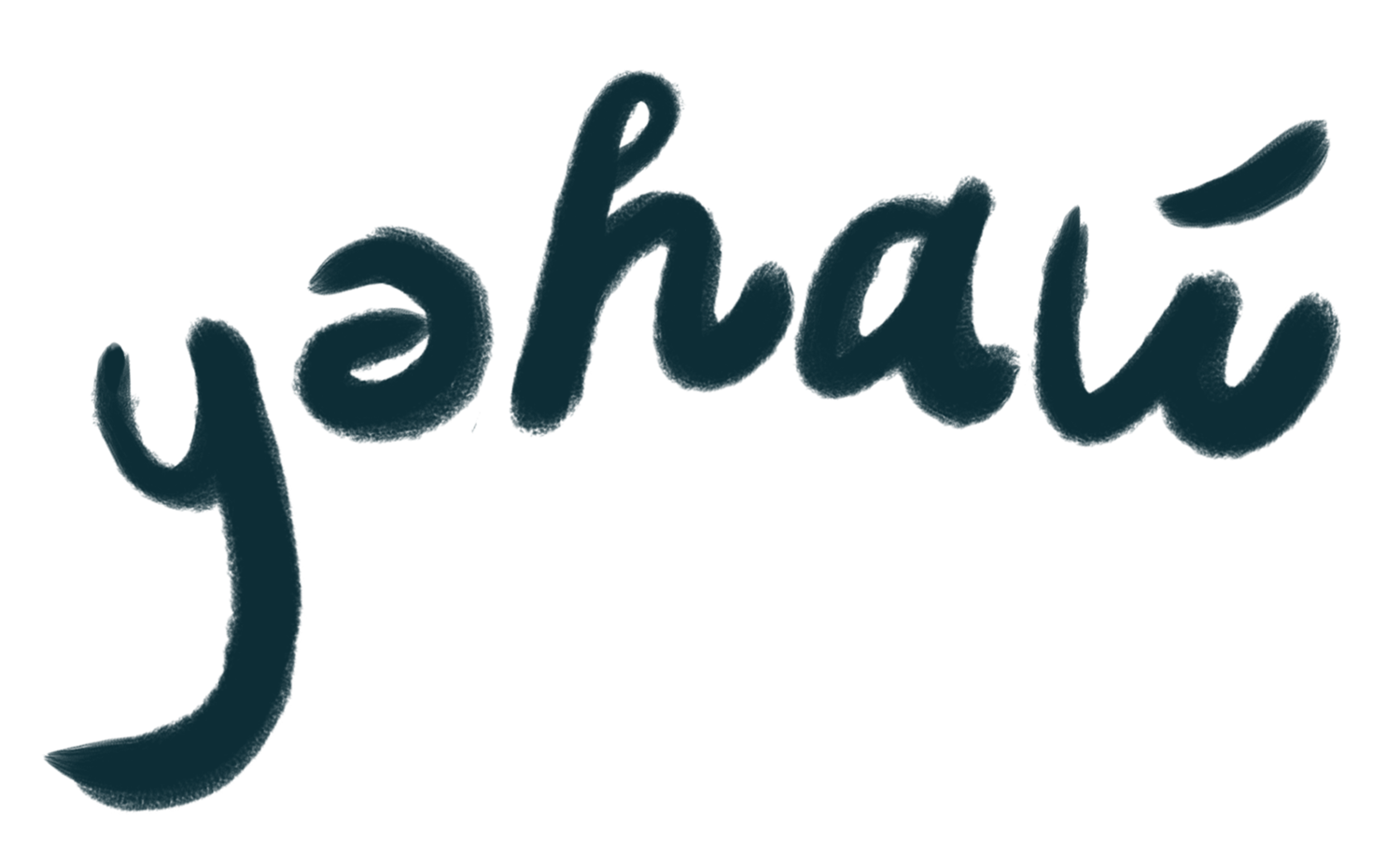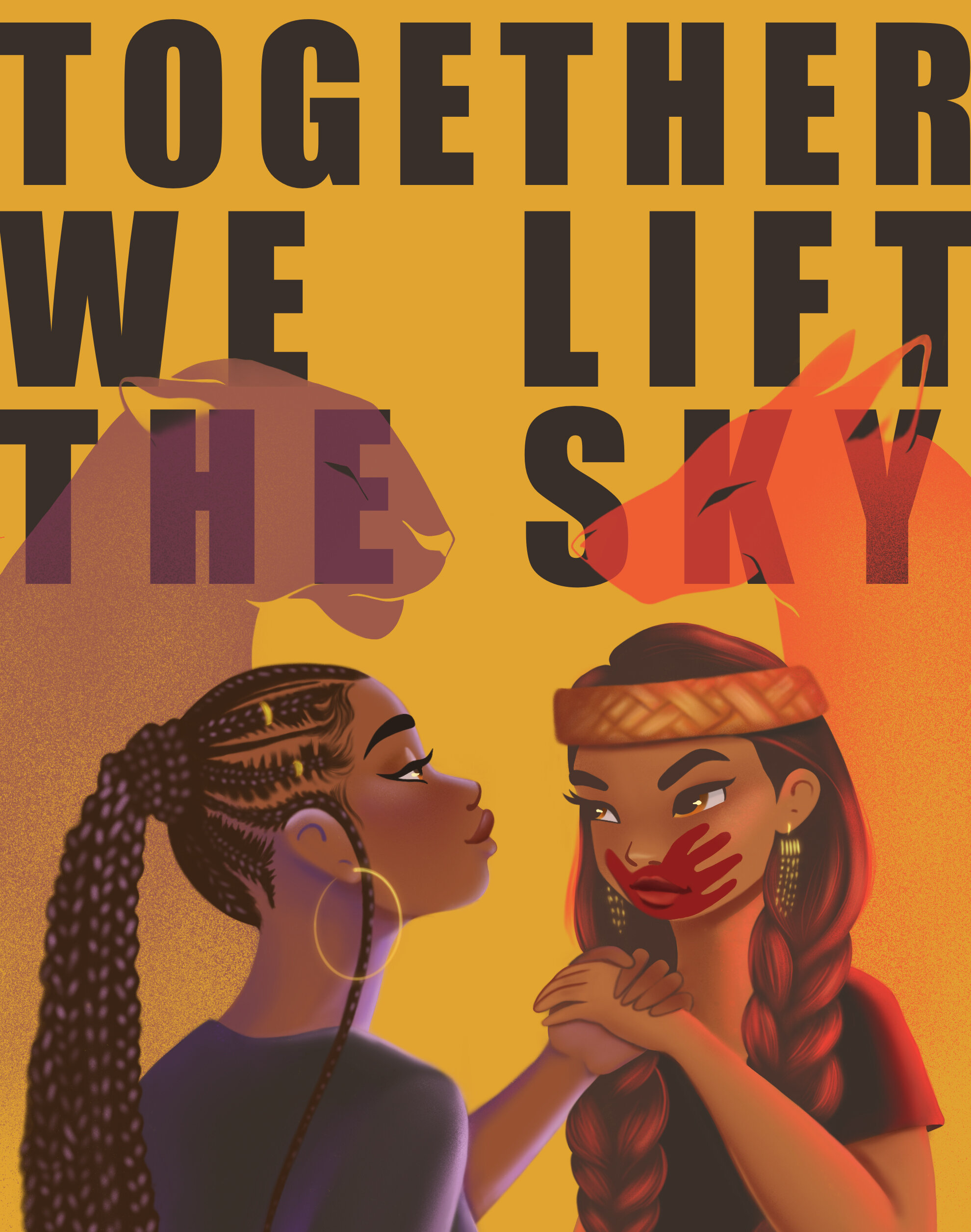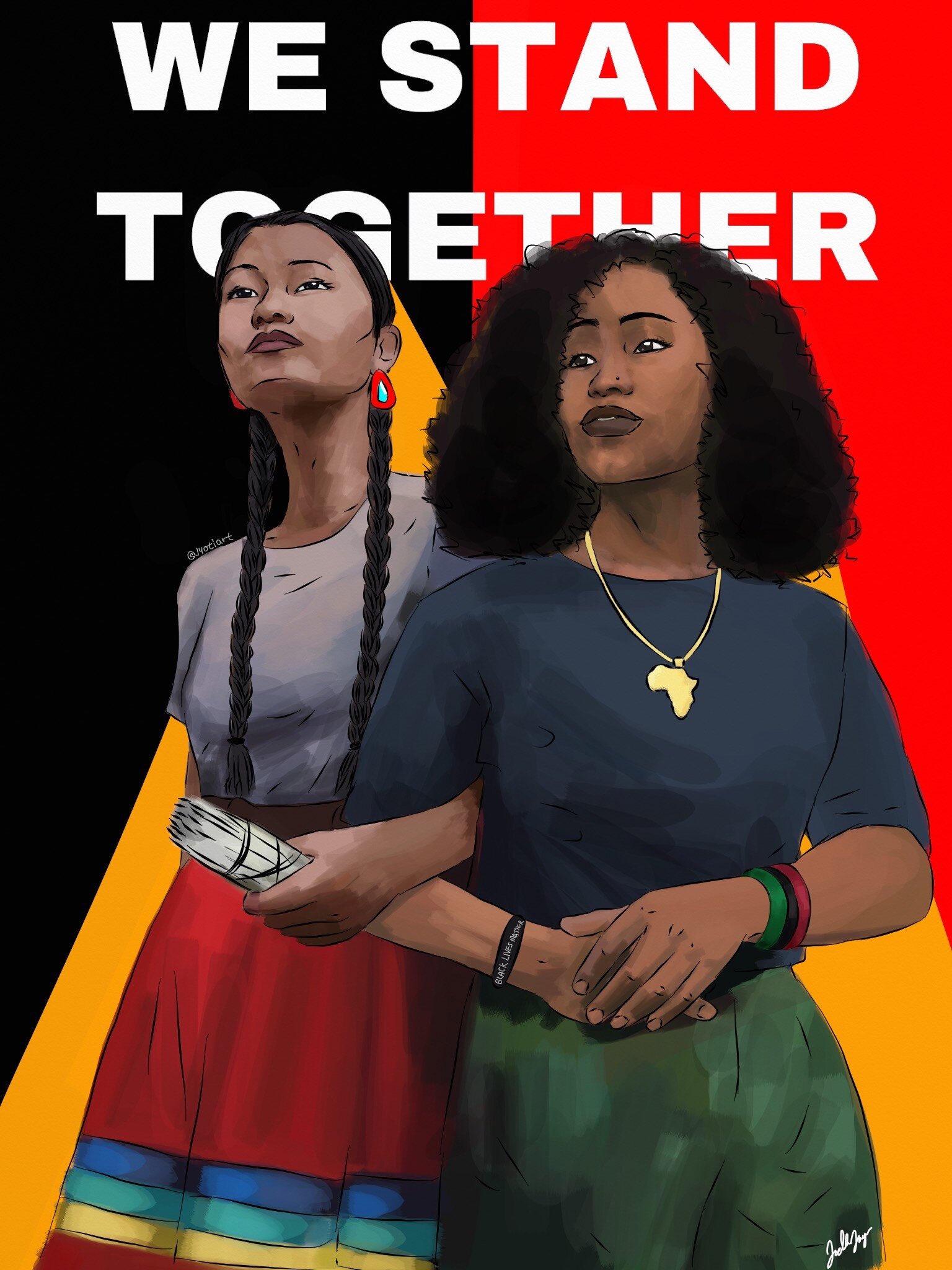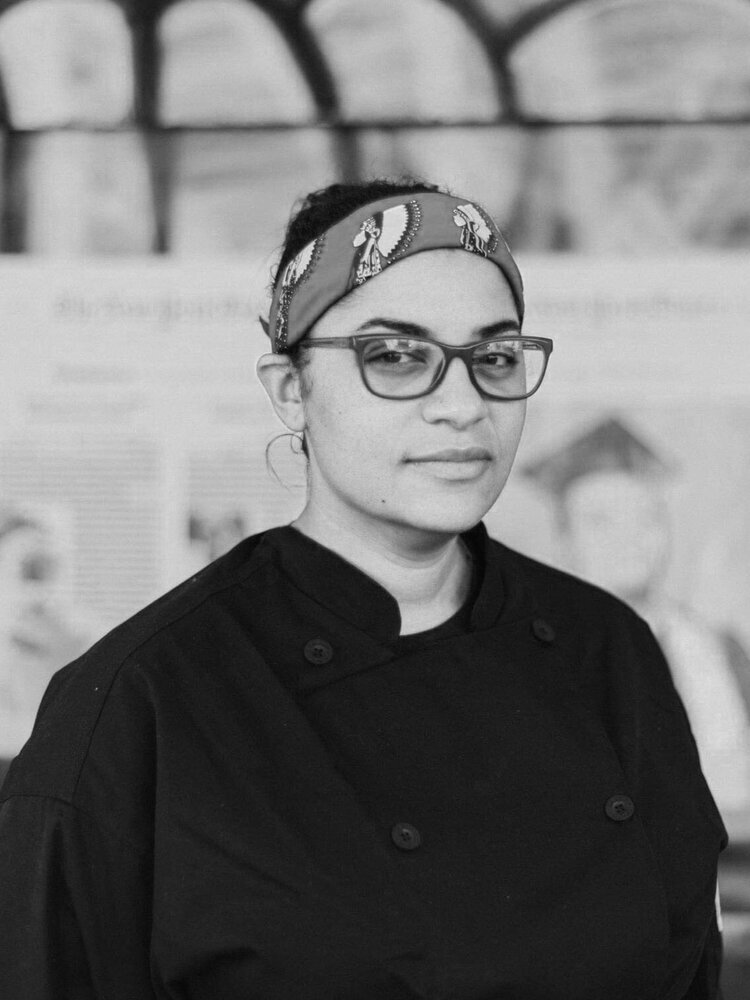Black Lives Matter
detail of poster by Paige Pettibon (Salish)
About the Project
yəhaw̓ seeks to authentically uplift the diversity within Indigenous communities across all our programs. In 2020, we launched a series of new initiatives to further amplify visibility for Afro-Indigenous artists through protest posters, an online exhibition, and related partner projects. This work is ongoing and central to our collective's mission.
Protest Posters
We’ve collaborated with Afro-Indigenous artists to create a series of posters. They are free for non-commercial purposes so you can post, print, wheat paste, wallpaper, or share how you wish - please credit the artists when you can. We’ve been printing and distributing these graphics for use at protests in Seattle and beyond.
Thank you to the artists, and our community curator Brit Reed for their work on this project. Thank you to Paper Press Punch, Cowlitz Tribal Health, and Vermillion Gallery for donating and distributing posters.
Click the images below to download poster files and learn more about the artists.
Online Exhibition
Telling Our Own Stories: Afro-Indigenous Creatives
yəhaw̓ hosted an online exhibition 2021-2025 featuring Afro-Indigenous artists from across the country. The story of Black Native and Black Indigenous folks is an old and ever evolving one - one older than the colonial countries that cover the western hemisphere. Our stories are rarely told - and all too often they are told by people that are not Black Native and Black Indigenous people. The purpose of this show is to create a space for Black Native and Black Indigenous voices from the western hemisphere to be heard and for us to be able to tell our own stories. Additionally, we hope that this show will help to spark conversations in our communities around anti-Blackness and anti-Nativeness - and what Black-Native solidarity looks like.
— Brit Reed, Curator
Partnerships
yəhaw̓ provided a small grant to support our longtime friends and collaborators at Teens in Tacoma for their youth organized Black and Indigenous Art Show featuring artists in Washington ages 14-18. Funds went towards artist and curator stipends.
Our poster project and collective members were also highlighted by the National Museum of the American Indian in American Indian magazine and the online exhibition Ancestors Know Who We Are.
A Message From Our Collective
June 8, 2020
There have been many statements of solidarity issued recently, with sentiments echoed across the world. While we don’t want to distract, or occupy too much space in this critical dialogue, we do want to take a moment to make sure our Black relatives know that we stand with you. Black lives matter. Black lives are sacred.
Thank you to the protectors marching in the streets, thank you to those posting messages of solidarity at home, to those donating, to others having hard conversations with friends or family, and to the artists finding ways to express our grief. Thank you to Black communities for your leadership and perseverance. With humility, we bear witness to your work, and raise our hands in gratitude.
Thinking ahead, we commit to using our resources and platform to continue contributing to Black communities in a healing way. We resist anti-Blackness outside and inside our communities. We seek to amplify the voices of Black and Afro-Indigenous peoples now, and continuously. In the spirit of our Lushootseed name, yəhaw̓, we will proceed and do the work to be in solidarity both publicly and in our own hearts and daily lives.
together we lift the sky,
yəhaw̓ Indigenous Creatives Collective
About the Curator
Ink & Paper Photo
Brit Reed (Choctaw/Black) cites her creativity starting from an early age with music and dance. During high school she became a freelance photographer shooting for Adore Vintage and local bands around North Texas. She studied film and photography at Columbia College Chicago, before moving to Olympia, WA in 2010 to attend The Evergreen State College where she eared her BA and MPA with a concentration in Tribal Governance. She focused her studies on tribal food (in)security, food sovereignty, tribal food policy, and the effects of food on the health of our tribal communities - later continuing these explorations at the Seattle Culinary Academy. In 2011 she began her love and obsession with beadwork that continues to this day. Additionally, Brit is the founder of Food Sovereignty is Tribal Sovereignty, works with the Tulalip Health Clinic's Diabetes Program to teach healthy cooking classes, and is a Sovereign Bodied Institute Community Research Leader. Check out her Instagram.






